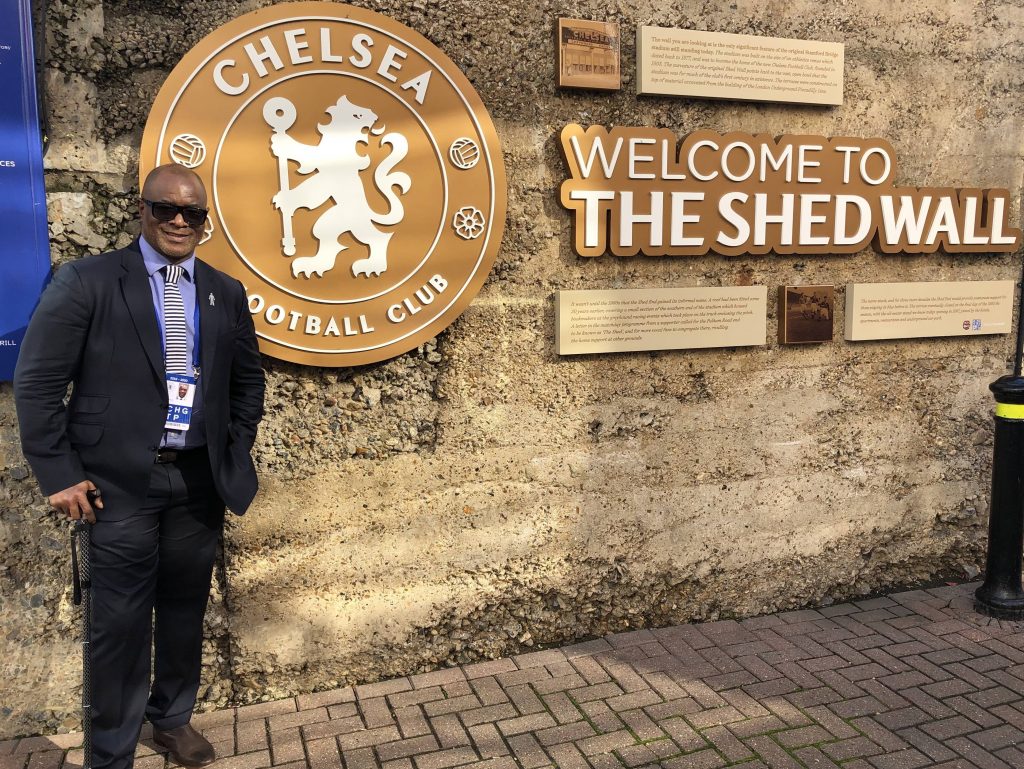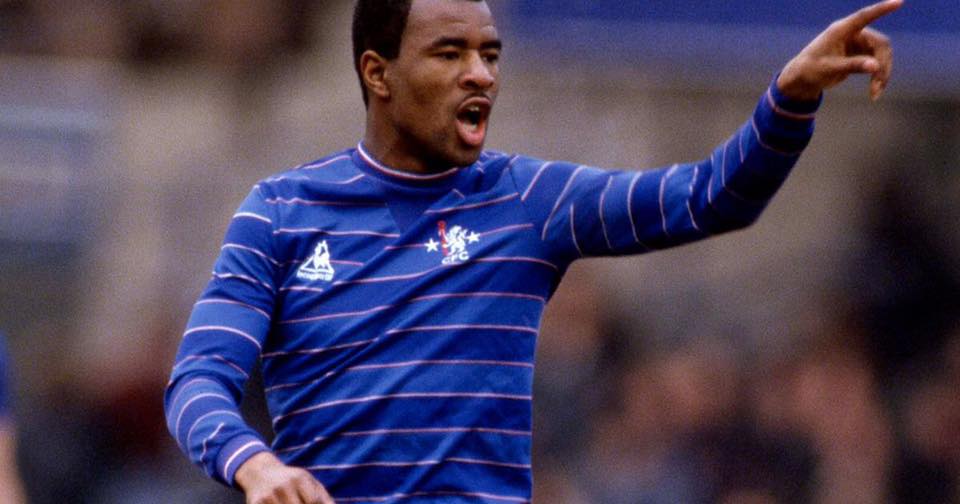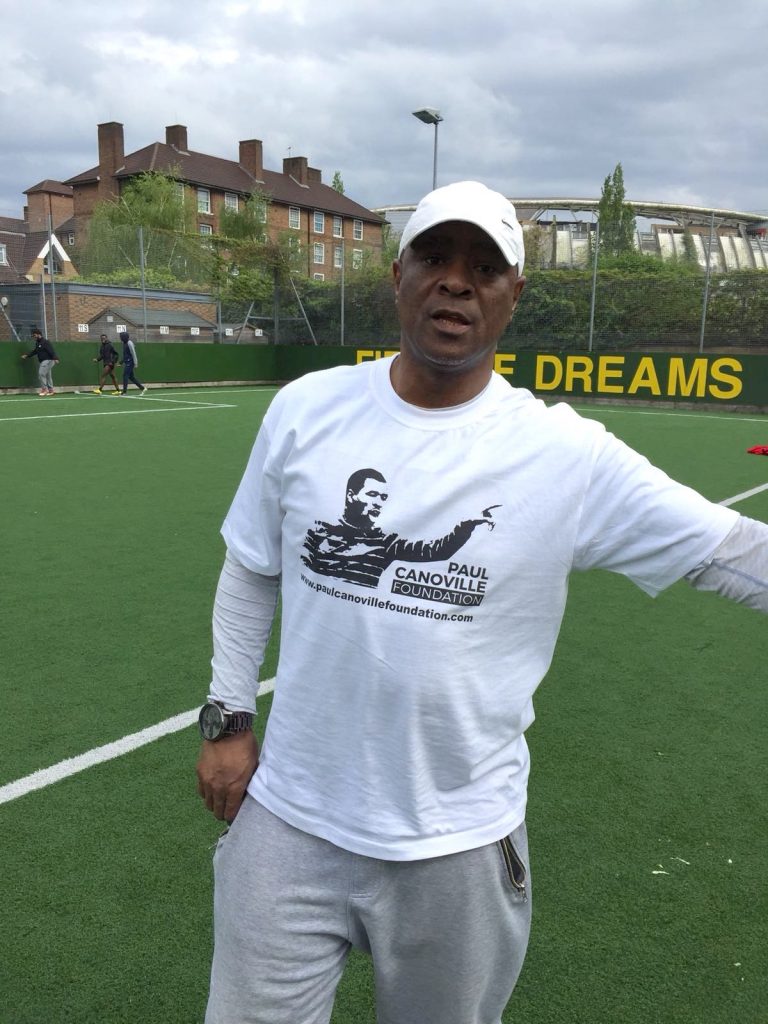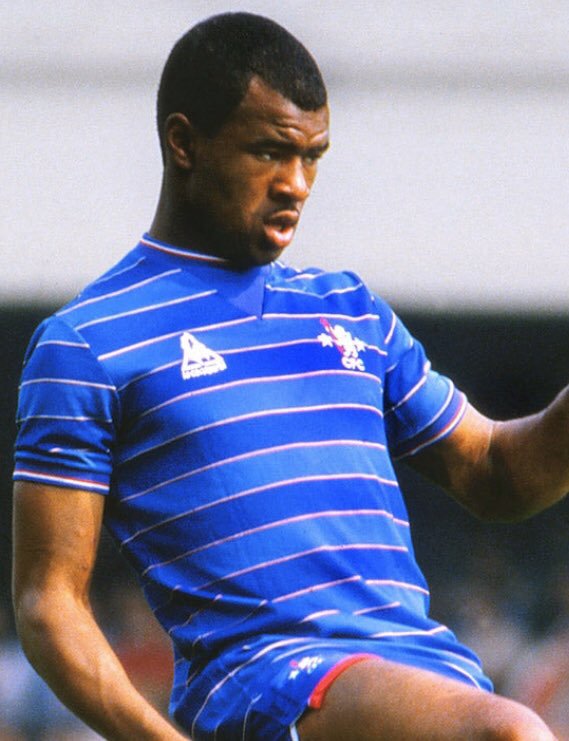Paul Canoville on Racism in Football, Then and Now

“I agree with it. It’s not about the players wanting to be militant, it’s that they aren’t being protected by the authorities,” Paul Canoville is of the firm belief that players who are racially abused not only have the right to walk off, but should.
Racist incidents have been reported recently at Victoria Park, Hartlepool, the Stadion Vasil Levski, Bulgaria and Coles Park Stadium, Haringey. The fact that this abuse has occurred in non-league football, international level and the FA Cup, shows how widespread this issue still is.

Canoville knows better than most what it is like to be the victim of such vile behaviour.
As a 20-year-old, he became the first black man to play for Chelsea, the club he still is heavily associated with. These days Canoville is a crowd favourite, but this was not always the case.
The clubs decision to pick him was not accepted by many of the fans at the time. As he warmed-up for his debut, at Selhurst Park in 1982, a torrent of racist bile rained down on him from the stands.
After a difficult upbringing including an absent father, homelessness, poverty and four months in prison, this moment should have been the happiest in his young life, and it was taken away from him.
Canoville assumed the abuse was from the home fans but was shocked when he glanced back and saw that it was, in fact, a section of the Chelsea support.

This abuse continued throughout his career at Stamford Bridge, with the club doing little to stop it or support their player.
“This was the old regime, I don’t think they knew what to do. But, somebody from as professional an establishment as a football club should have thought ‘you know what, we have this player who’s taking a lot of stick, have we asked him if he’s alright?’ And nobody did,” Canoville told the Sports Gazette.
Asked if he spoke to anyone either within or outside of the club about the continued abuse he got from fans, opposition players and in one case a team-mate, Canoville replied he did not.
“As a young lad I didn’t want to be seen as weak. I didn’t want to be seen as complaining. I honestly didn’t want to be thrown out by them [Chelsea], and I thought if I complained they would just think, ‘we don’t need this here’. So it was just a case of keeping it to myself.
“But then it [the anger] comes out in the wrong way and it comes out in an argument when really it’s not that person’s fault but I didn’t realise that until later on when I had my troubles with drugs and I was in rehab, and talking to a counsellor.”

Canoville thinks this has changed for today’s players and urges them to seek help no matter what the issue.
“I would tell the young lads, and this goes beyond racism, with any difficulties they have, go to your coaches, go to the manager and let them know right away how you’re feeling because there is help for you.
“The clubs have a support network these days. You never used to realise or think a youngster could have depression but you see it when a young player has been there for three or four years and then they don’t get a professional contract, you can see how that affects them. We’ve heard some stories of boys taking their own lives, and others being depressed because it is so big for them. So most definitely seek help right away, do not let it dwell in you, reach out to your parents or the club.”
Clubs are now offering the support that was unavailable to Canoville, and along with them, The Paul Canoville Foundation is offering it too. This was set up in 2015 as a way to support young people in overcoming adversity.
Canoville added: “I really love the foundation, it has gradually grown, and it really does assist the youth, and obviously with what is going on today with the knife crime, now is the time to really help and make them understand which direction in life they want to go.”

Canoville believes that players, fans and team-mates have a responsibility to help rid the game of racism.
He feels this will have a trickle down effect on children as they see their role-models act out against it.
“When I was playing, I understand for other fans it was frightening, people wanted to say something but at the same time there were a lot of hooligans, but today’s football is different.
“It’s multi-cultural, there are families there, if you hear something you need to speak up, you want those people out. Individuals can make a stance and stand up against it.
“But it is also a society thing, it’s not just a football thing. You don’t come to football being a racist and then leave football not being a racist, it doesn’t work like that. You’re a racist and that’s it. Education is the only answer in society and walking off with the support of your teammates is the answer in football.”
Canoville argues that this is the only answer due to lack of action from the football authorities: “It has crept back in and got larger, because the players aren’t being protected from it, by the FA, UEFA, and FIFA.
“Fans who are caught are being given fines, petty fines, and you’ve got to do more, it’s more serious than that.
“The UEFA protocol, it has three steps, come on man, warning twice is enough, a third time till you come off, what’re you waiting for?”
Canoville once again mentions the football authorities: “Why is it down to the players to do this though? The authorities have to step up and deal with it.”

On his current relationship with Chelsea Canoville is mostly positive. Stating numerous times his love for the club, his love for his matchday hospitality role, and the enjoyment he gets from being invited to talk with the academy players.
However, there are some issues that hark back to the racist days from his career. “I am upset with one of the names they have on a suite. An individual that racially abused me as a team-mate, his name is up on a suite and I’m not happy about that [Canoville did not want to name him].
“I think that’s just the regime being lazy, if they knew the history then they wouldn’t have that up there. I’m not bitter, because if I was, I wouldn’t be working at the club, I love the club,” said Canoville.
Despite this and the recent spate of racist incidents in the game, Canoville does see some signs of progress: “Now when I turn up to Stamford Bridge, I get apologies.
“People tell me ‘Canners, I just want to say sorry. I used to racially abuse you. I didn’t know any better I was just following my dad, and now I realise the impact of what I was doing, and I see the impact that would have on my kids.’ And that’s enough for me, I see the message has got through and the education is working.”